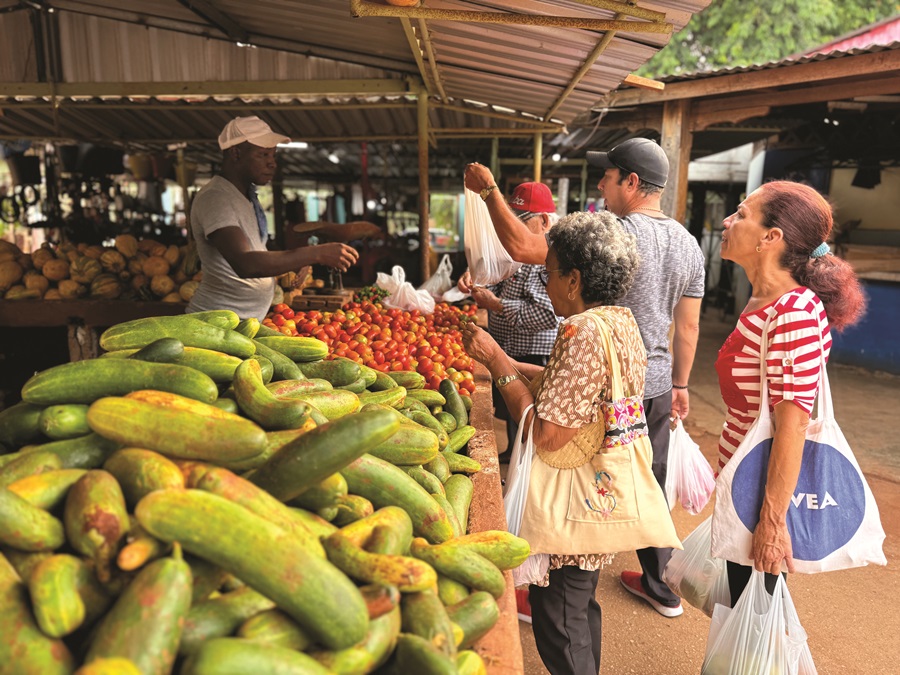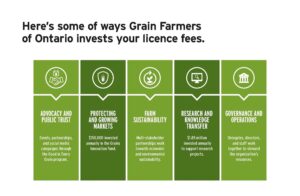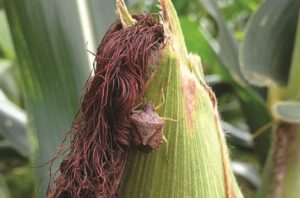Opening the Cuban market
PRIVATE ENTERPRISE EXPANDS OPPORTUNITY

CANADA’S CONNECTION WITH ONE OF ITS FAVOURITE TOURIST DESTINATIONS, CUBA, MAY BE POISED TO REACH A NEW LEVEL — one that could be a changing market opportunity for Ontario specialty grain producers and help save the struggling Caribbean country from economic and humanitarian disaster.
This opportunity is a result of a sea change in Cuba’s constitution. In 2021, the Communist government did an about-face and started letting its citizens develop micro, small and midsize enterprises with up to 100 employees. It was a new development in the dawning of Cuba’s private sector that began back in 2011 with the approval of one-owner businesses.
WHAT YOU NEED TO KNOW
- Changes in Cuba’s constitution now allow private citizens to establish small businesses employing up to 100 people.
- Economic struggles due to longstanding U.S. sanctions, domestic bureaucratic mismanagement, Covid-19, and a culture of relying on the government necessitated the change.
- The changes could result in increased opportunities for Canadian farmers; Canada is already one of Cuba’s largest trading partners.
- For Ontario grain farmers, there could be new opportunities for smaller, specialized grain exports through additional buyers other than the Cuban government.
This latest measure is driven by necessity. Beautiful yet beleaguered Cuba is becoming increasingly desperate for money. Long-standing U.S. economic sanctions, domestic bureaucratic mismanagement and miscalculations, Covid-19 reverberations, and a culture built around relying on the government for almost everything had made island living a mess.
The Cuban government hoped that giving the green light to private enterprises, called pequeña y mediana empresa or “mipymes,” would help turn things around economically. Even though mipymes are regulated by the Cuban government, they have the potential to open doors for entrepreneurial, profit- driven Cubans who want more than what communism has provided. This could bode well for anyone interested in doing business with them, too.
It turned out the pent-up demand was significant. In just three years, a whopping 11,000 mipymes sprung up, marking a new era in Cuba’s ideologically driven business culture. Start-up funds for many of the mipymes were courtesy of family members from abroad, who were accustomed to sending money back to Cuba to support their relatives’ day-to-day needs. Now, they would also be supporting their relatives’ mipymes.
The Cuban government still has a huge role in business, and commerce there is not simple. The Canadian government publishes a detailed 10-step process for exporting to Cuba. But with the constitutional change, factories run, equipped, and staffed by the state can now work with the private sector responsible for importing. For example, a state-owned pasta factory can work with a private importer to bring in wheat flour.
“Exactly how they’ll get along as business partners is a question,” says Paul Johnson, Chicago-based chair of the U.S. Agriculture Coalition for Cuba. “But at least now there’s an opportunity for them to come together.”
WORKFORCE IMPACTS
Private industry is changing the workforce. Johnson says that one-third of the workforce is now employed by mipymes and farm cooperatives. Business activities include food processing, accounting, computer programming, hospitality, and restaurants. In a capitalistic society like Canada, these kinds of private-sector enterprises would be considered normal and routine. But that hasn’t been the case in Cuba for some 50 years following the revolution. Most people have become accustomed to working for the government; the government owns almost everything, and the financial incentives for working hard are nil.
Johnson, who lived in Cuba and has friends and relatives there, is bullish about the emergence of mipymes.
“Cubans can now work and earn hard currency without being dependent on government,” he says.
MARKET OPPORTUNITIES
Johnson also points to a growing government-owned warehouse industry developing in Cuba. Warehouses receive pallets and shipping containers — again, many of which are from family members living abroad — resulting in jobs for handlers and processors and a delivery network for drivers. The government owns the warehouses, but mipymes are allowed to rent space and operate.
“I don’t see the new changes opening up Cuba to something like huge boatloads of private grain shipments,” Johnson says, “but it seems like there could be new opportunities for smaller, specialized grain exports through additional buyers other than the government.”
But while these positive developments sound promising, they mask a greater and dire woe belying Cuba. For example, currently, Cuba imports 70 per cent of its food and exports a pittance. When the Soviet Union collapsed, any semblance of economic vibrancy that accompanies a healthy import-export mix disappeared. Canada has been one of Cuba’s strongest trading partners. However, without significant output from Cuba, the trade imbalance is significant, CAD $66 million in February alone.
The farming sector is sluggish. Food production was a vital part of the Cuban Revolution, employing thousands of Cubans and providing everyone with some measure of their basic needs. But, the long-standing Communist rule in which most agricultural land is owned by the state no longer motivates farmers. They are paid low wages, they have no modern equipment or supplies, and their numbers are dwindling, with 600,000 Cubans (mostly young people) having left the country in the past two years.
This has all led to a perfect storm. Two- thirds of Cubans still count on the federal government for a living and for basic food necessities. Normally, items such as powdered milk, rice, ground soy, baloney, eggs and chicken are made available to Cubans through government ration books. However, ration reliability has tailed off as the government has become increasingly poorer, and farmers’ production has dropped by as much as 90 per cent for some commodities.
The severity of the problem was underlined in February when Cuba took the unprecedented step of asking the United Nations World Food Programme to send powdered milk for children. “This is a generational change that affects everyone,” says Johnson. “People are adjusting to the change in the economic model.”
Johnson continues his efforts to work through political channels for change. His organization, comprising U.S. businesses such as grain companies and food processors eager to trade with Cuba, meets regularly with federal decision makers to describe how a private sector has developed in Cuba and try chipping away at the stubborn American trade embargo against the country.
Reducing the embargo to any extent would help ease Cuba’s desperation. Johnson was hopeful U.S. President Joe Biden would take a softer line than former President Donald Trump. However, that hasn’t happened.
“The U.S. government’s primary concern is the lack of freedom in Cuba,” Johnson says. “But the image of a capitalist in Cuba is in flux, and we’re all sorting through the changes.” •


























